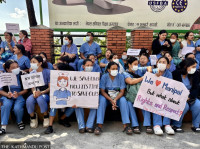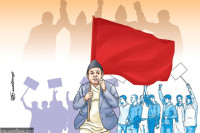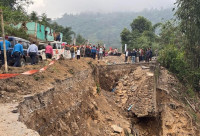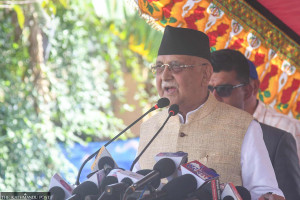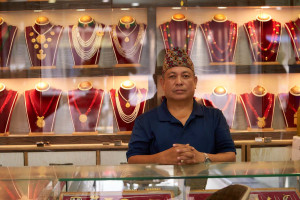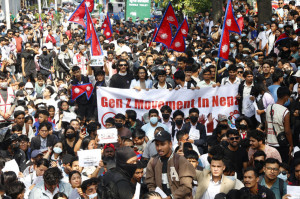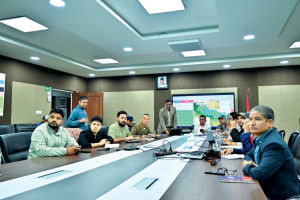Opinion
Piece of cake
There is a saying that good things come in small packages.
Suraj Narayan Singh Thapa
There is a saying that good things come in small packages. At our office, we celebrate the birthday of every staff member in our department. Each time, we bring a two-pound cake from the same cake shop for about 20 co-workers. It is cut into small equal sizes. We all get to have a small tasty piece of cake and sometimes we are even successful in saving two to three extra pieces. So some people get to enjoy two pieces of cake from the share of the staff members who are absent on that day. Everyone feels happy about the whole thing, there is equal distribution of the cake, there is still demand for more since the amount is small.
On the contrary in restaurants, if we order a lot of food, sometimes there is unequal distribution; and one ends up overeating to the point where diminishing marginal utility comes into play. At the end of the meal, because of overeating and abundance, people feel worse off instead of feeling good.
What I have observed is that dealing with things in small quantities and proportions is easier and better than handling big things. So, whenever there is a problem of any sort, one should divide it into smaller portions so that each problem becomes easier to handle. One should not create a mountain of problems Nepal has been able to utilise only around 2.5 percent of its commercially exploitable water resources. The country’s feasible hydro electricity potential amounts to 42,000 MW. But the sad thing is that it has developed only approximately 1,000 MW. If we had less water resources, maybe the total amount of production and percentage of production and utilisation would have been much higher than what it is at present. When we have things in abundance, we do not really value them and tend to relax.
In contrast, Bhutan has around half of Nepal’s feasible water resources. Its feasible hydro potential amounts to 20,000 MW, and is currently producing around 2,000 MW which is much more than Nepal. Mainly because of a few mega hydro power projects, namely Chukha Hydro Project and Tala Hydro Project, Bhutan’s economy is growing. It has one of the fastest growing economies in the world. While looking at the economy of small countries like Switzerland, we see that it just focuses on a few products. What small countries realise is that their size is not their strength. Hence, from whatever resources are available, they efficiently and effectively work on their core competencies. Nepal should focus on its few core competencies and strengths like hydro, tourism and agriculture. Nepal should try to utilise its tremendous hydro electric potential by building a few manageable mega projects. The plan should not be limited to paper and speeches but should be put into practice.




 17.12°C Kathmandu
17.12°C Kathmandu
